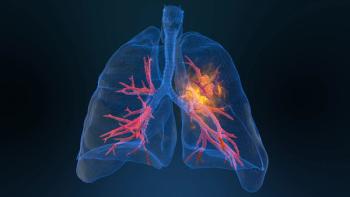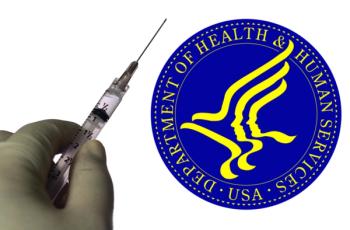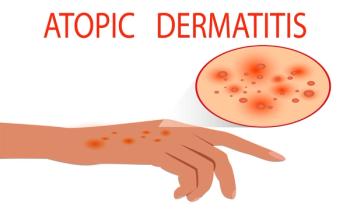
The FDA's new guidance shapes drug development for myelodysplastic syndromes (MDS), emphasizing trial design, patient selection, and safety reporting for better treatment outcomes.

The FDA's new guidance shapes drug development for myelodysplastic syndromes (MDS), emphasizing trial design, patient selection, and safety reporting for better treatment outcomes.

The global burden of pulmonary arterial hypertension (PAH) remains great, with cases jumping 85.6% in 32 years.

Many patients value conversations with their rheumatologists and oncologists more than just reading information from a website.

Of 14 metabolites identified, 2 appeared to have “robust” causal relationships with idiopathic pulmonary fibrosis.

US ovarian cancer mortality rates declined from 1999 to 2020, but significant disparities remain across age, race, and geographic regions, highlighting the need for targeted public health efforts.


Mirima Freimer, MD, delves into potential reasons behind the longer-term efficacy of zilucoplan and also speaks to the treatment’s safety profile.

Older patients with small cell lung cancer and significant weight loss were more likely to experience dose interruptions than patients with cachexia.

Participants performed touchscreen-based reaching tasks while wearing wireless motion sensors, which recorded linear acceleration, angular velocity, and roll-pitch-yaw orientation at millisecond resolution.

Current guidelines suggest limiting diagnostic testing for chronic spontaneous urticaria when no clear cause is suspected, though biomarkers and biopsies are emerging as tools to predict treatment response and personalize care.

Medical societies challenge HHS Secretary Robert F. Kennedy Jr's COVID-19 vaccine rollbacks, and more news updates from the week.

A new analysis highlights the effectiveness of risankizumab in patients with moderate plaque psoriasis and those newly classified as systemic therapy eligible under International Psoriasis Council guidelines.

Vaccination against COVID-19 is crucial for individuals with multiple sclerosis (MS), ensuring safety and effectiveness despite immunosuppressive therapies.

Patients with bronchiectasis face heightened risks of severe exacerbation and mortality after COVID-19 recovery, especially following severe cases.

Dry eye affects up to 16 million people in the US, and new treatments aim to mitigate the symptoms that can disrupt quality of life in these patients.

Countries in sub-Saharan Africa could see thousands of deaths from HIV due to cuts to the US President’s Emergency Plan for AIDS Relief (PEPFAR), underscoring the necessity of reinstating the program.

The plaintiffs are seeking preliminary and permanent injunctions against recent COVID-19 vaccine policy changes and a declaratory judgment that the HHS secretary’s actions were unlawful.

Tyler Sandahl, PharmD, a clinical pharmacist at Mayo Clinic, explains that sequencing novel multiple myeloma therapies with CAR T-cell therapy is generally prioritized first for eligible patients, while bispecific antibodies are reserved for later lines or for patients unable to tolerate CAR T.

A new survey found that most individuals with dry eye were not sure if dry eye resolves by itself, highlighting a lack of education on the disease.

Obesity was significantly more prevalent in Black and Hispanic children and adolescents compared with their non-Hispanic White peers and was potentially exacerbated by the COVID-19 pandemic, a study found.

Encounter-level factors played a key role in limiting outpatient COVID-19 treatment for Black and Latino patients.

Following 16 weeks of rezpegaldesleukin treatment in the REZOLVE-AD study, primary and key secondary end points have been met.

Tyler Sandahl, PharmD, a clinical pharmacist at Mayo Clinic, discussed the complexities of alternative payment models for chimeric antigen receptor T-cell and bispecific therapies and the need for improved data sharing in cancer care.

The decision could have ripple effects across the country when it comes to state governments deciding who gets to receive Medicaid funds, says Jennifer Evans, JD.

Explore how health equity initiatives aim to improve health care access and reduce disparities in mental health and opioid treatment.

The treatment marks the only targeted oral treatment in patients with non–small cell lung cancer with epidermal growth factor receptor exon 20 insertion mutations.

Access to and affordability of immune checkpoint inhibitors, which can be lifesaving if patients receive them on time and under optimal circumstances, continue to top the list of reasons behind outcomes disparities for patients who have private insurance vs those who remain uninsured.

For the second time in under 3 weeks, the FDA has approved a treatment for the inherited genetic disorder characterized by recurrent episodes of severe swelling.

Patients with chronic lymphocytic leukemia (CLL) or small lymphocytic leukemia (SLL) treated with venetoclax plus obinutuzumab experienced significantly higher rates of serious infections compared with those receiving zanubrutinib, according to real-world data.

Advancements in B-cell therapies, including anti-CD20 and anti-CD19 monoclonal antibodies, enhance treatment efficacy and safety for multiple sclerosis and autoimmune diseases.

259 Prospect Plains Rd, Bldg H
Cranbury, NJ 08512
© 2025 MJH Life Sciences®
All rights reserved.
